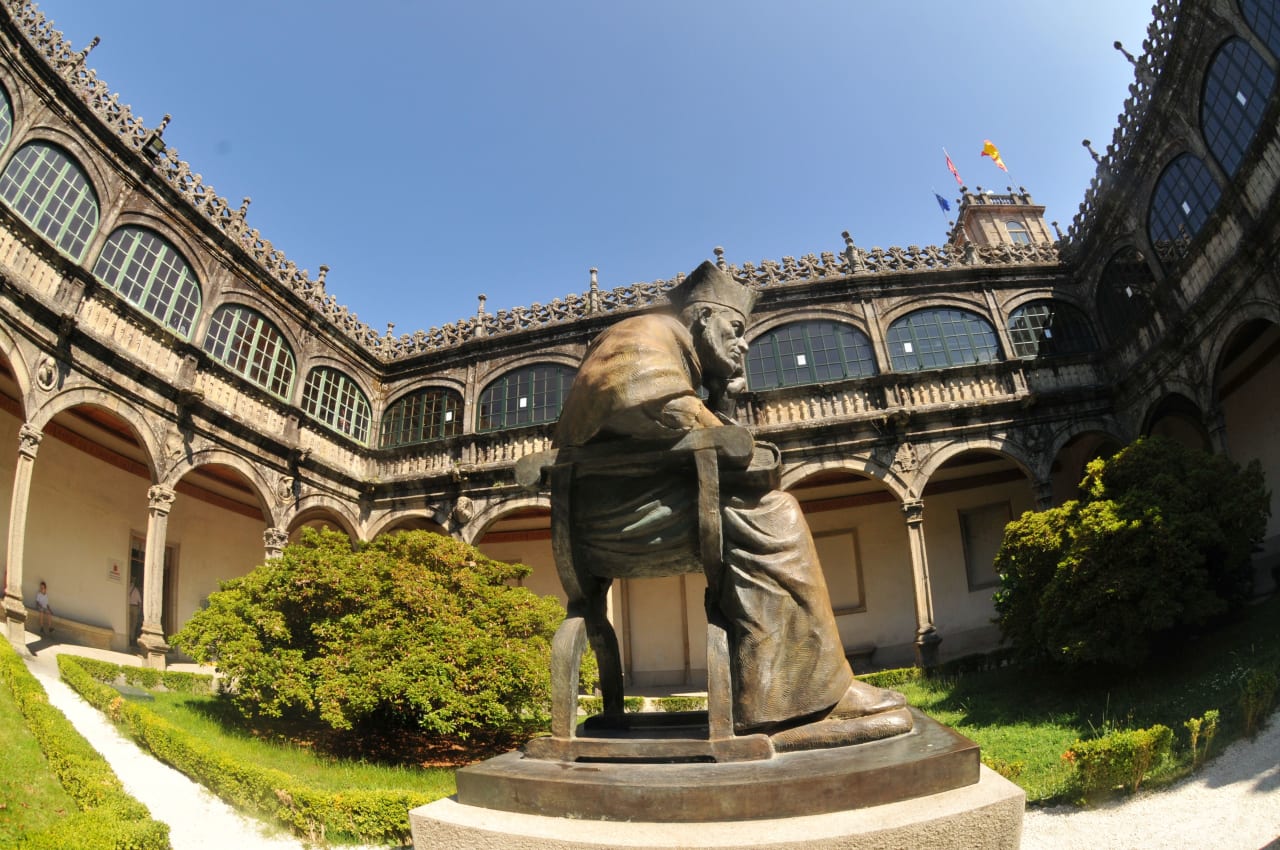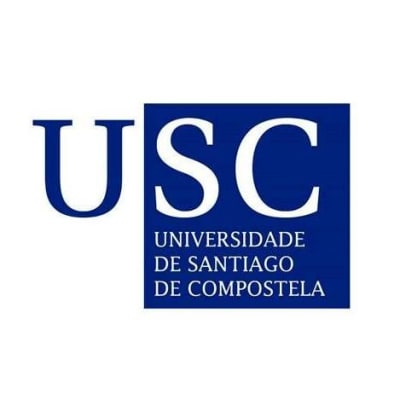
Doctorate in Cultural Studies: Memory, Identity, Territory and Language
Universidade Santiago de Compostela

Key Information
Campus location
Lugo, Spain
Languages
Spanish, Galician
Study format
On-Campus
Duration
3 years
Pace
Full time
Tuition fees
EUR 200 / per year
Application deadline
Request info
Earliest start date
Request info
Introduction
The aim of this program is to address in an interdisciplinary way, on the one hand basic research on cultural theory, and on the other, sociocultural research applied to contemporary globality, among which the relationships between memories, landscapes, migrations, identities, rights stand out. human, cultural creations and movements, these issues being approached from interdisciplinary perspectives that bring together researchers from the fields: Social and Cultural Anthropology, Political Science, Literary Studies, Philosophy, Human Geography, History, History of the Arts, Linguistics and Sociology.
Presentation
The program is also conceived as a program that will contribute to the scientific development of the business fabric of Galicia and Brittany in the domain of cultural design applied to the organization of companies and cultural institutions, where it may be in wide demand. The program will allow to train doctors with basic and applied knowledge in different areas of knowledge, who at the same time are capable of integrating knowledge and methods of complementary areas, in order to make possible the appropriate, well-oriented specialization and progress in knowledge, which requires interdisciplinary training in Humanities and Social Sciences. The purpose of the program is to offer students the possibility of obtaining their joint doctorate degree from the two universities, by submitting their thesis at one of them.
Requirements
1) In general, for access to an official doctoral program it will be necessary to be in possession of official Spanish Bachelor's degrees, or equivalent, and University Master's degrees, or equivalent, provided that at least 300 credits have been passed ECTS in the set of these two teachings.
2) Likewise, anyone who is in any of the following cases may access:
- Be in possession of an official Spanish university degree or from another country that is part of the European Higher Education Area, which enables access to the master's degree in accordance with the provisions of article 16 of RD 1393/2007, and pass a minimum of 300 credits ECTS in all official university studies, of which at least 60 must be at master's level.
- Be in possession of an official Spanish graduate degree, whose duration, according to community law regulations, is at least 300 ECTS credits. Said graduates must take the compulsory training complements required by the program, except that the study plan of the corresponding bachelor's degree includes research training credits equivalent in educational value to research credits from master's studies.
- University graduates who, after obtaining a place in training in the corresponding test for access to specialized health training places, pass with a positive evaluation at least two years of training in a program to obtain the official degree of any of the specialties in science Of the health.
- Be in possession of a degree obtained in accordance with foreign educational systems, without the need for its homologation, after verification by the University that it accredits a level of training equivalent to that of the official Spanish university master's degree and that it empowers in the issuing country of the title for access to doctoral studies. This admission will not imply, in any case, the homologation of the previous title of which the interested party is in possession or its recognition for purposes other than that of access to doctoral studies.
- Be in possession of another Spanish doctorate degree obtained in accordance with previous university regulations.
- Be in possession of an official university degree that has obtained the correspondence to level 3 of the Spanish Qualifications Framework for Higher Education, in accordance with the procedure established in Royal Decree 967/2014, of November 21, which establishes the requirements and procedure for the homologation and declaration of equivalence to a degree and official university academic level and for the validation of foreign studies in Higher Education, and the procedure to determine the correspondence to the levels of the Spanish Framework of Qualifications for Higher Education of the official titles of Architect, Engineer, Graduate, Technical Architect, Technical Engineer and Diploma.
3) Doctoral students who will start their doctoral program in accordance with previous university regulations will be able to access doctoral studies, after their admission in accordance with the provisions of the USC Regulations for doctoral studies. In any case, they must meet the general requirements established in said Regulation to access doctoral studies.
4) Graduates, architects or engineers who have the advanced studies diploma obtained in accordance with the provisions of Royal Decree 778/1998, of April 30, or achieve research sufficiency regulated in the Royal Decree 185/1985, of January 23.
5) Graduates, architects or engineers who have an official master's degree in accordance with Royal Decree 56/2005 or Royal Decree 1393/2007, modified by Royal Decree 861/2010, or have passed 60 ECTS of official master's degree studies.
6) Graduates, technical engineers or technical architects who prove that they have 300 ECTS credits passed in the set of official university studies, of which, at least 60, must be at the master's level, will also be able to access.
Gallery
Ideal Students
Admission profile
Students who take the following official master's degrees will have direct access, without the need to take additional training, at both the USC and the Rennes 2 University:
1) At USC:
- Cultural services
- Philosophy: Current Issues
- Contemporary history
- Applied Linguistics
- Literature and Culture Studies
- English studies
- linguistic studies
- Management of Artistic and Architectural Heritage
- Communication and creative industries
- Education, gender and equality
- Research in education, cultural diversity and community development
2) In Rennes 2:
- Master LCER ETILA (Études Ibériques et Latino-américaines) and ETILA international in partnership with the Autonomous University of Madrid for the CERPI, the LIRA and the PRIPLAP
- Master Lles Amériques pour lle L'ERIMIT (Interlangues, Memoires, Identités, Territoires) et l'EA ACE (Anglophonie: Communautés et Écritures)
- Master LEA commerce international ALPI (Amérique LAtine et Péninsule Ibérique) pour lle CERPI, lle LIRA, lle PRIPLAP
- Master LCER Arabe obtained in 2008, plus two projects in the course of réalisation for 2011 and 2012. Below is the project of an international master at the University of Fès (Maroc)
- LCER Master in German Studies for ERIMIT
- LCER Master in Russian Studies for ERIMIT
3) Students who obtain a Diploma of Advanced Studies in Social Anthropology, Communication, Geography, Philosophy, History, Art History, Humanities, Linguistics, Modern Languages and Literatures will also have direct access to USC.
4) In other cases, it will be the corresponding delegated Subcommittee of the Academic Commission who will decide the convenience of taking additional training.
Admissions
Program Outcome
Objectives and competencies
This program aims to address in an interdisciplinary manner, on the one hand, basic research on cultural theory, and on the other, sociocultural research applied to contemporary globality, among which the relationships between memories, landscapes, migrations, identities, rights stand out. humans, creations and cultural movements, these topics being addressed from interdisciplinary perspectives that bring together researchers from the fields: Social and Cultural Anthropology, Political Science, Literary Studies, Philosophy, Human Geography, History, Art History, Linguistics and Sociology.
It is also conceived as a program that will contribute to the scientific development of the business fabric of Galicia and Brittany in the domain of cultural design applied to the organization of companies and cultural institutions, where it may be in wide demand.
The program will make it possible to train doctors with basic and applied knowledge in different areas of knowledge, who at the same time are capable of integrating knowledge and methods from complementary areas, in order to make possible the appropriate well-oriented specialization and progress in knowledge, which requires interdisciplinary training in Humanities and Social Sciences.
The program aims to offer students the possibility of obtaining their joint doctoral degree from the two universities, by presenting the thesis at one of them.
General competitions
- Systematic understanding of a field of study and mastery of the skills and research methods related to that field.
- Ability to conceive, design or create, implement and adopt a substantial research or creation process.
- Ability to contribute to expanding the frontiers of knowledge through original research.
- Ability to carry out critical analysis and evaluation and synthesis of new and complex ideas.
- Ability to communicate with the academic and scientific community and with society in general about their areas of knowledge in the modes and languages commonly used in their international scientific community.
- Ability to promote, in academic and professional contexts, scientific, technological, social, artistic or cultural progress within a knowledge-based society.
Specific competencies
- Systematic understanding of a field of study and mastery of the skills and research methods related to that field.
- Ability to conceive, design or create, implement and adopt a substantial research or creation process.
- Ability to contribute to expanding the frontiers of knowledge through original research.
- Ability to carry out critical analysis and evaluation and synthesis of new and complex ideas.
- Ability to communicate with the academic and scientific community and with society in general about their areas of knowledge in the modes and languages commonly used in their international scientific community.
- Ability to promote, in academic and professional contexts, scientific, technological, social, artistic or cultural progress within a knowledge-based society.
Other competences
- Learn to work in interdisciplinary teams on the socioeconomic applications and problems of cultural designs
- Learn to design international cooperation programs on human rights
- Know the methods and techniques of ethnographic research applied to intercultural phenomena
- Learn to master the main models of social and cultural theory applied to cultural processes